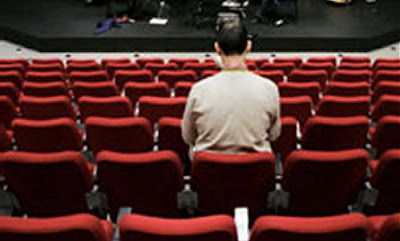Is live classical music price elastic?

Amid all the debate about the benefits of free recorded music shouldn't we be asking if live music has the same price elasticity? Would cutting the cost of concert tickets attract new listeners and boost audiences?
One case study suggests it would. I have already written here about the success achieved by Aldeburgh Music in building audiences for adventurous repertoire. Aldeburgh has an established policy of half-price tickets for anyone under 27, no other qualification such as student status are required although Aldeburgh also runs its own student card.
Extending discounts beyond students is a smart move. Student concessions have an image of uncomfortable seats way up in the 'gods'. There are a lot of high disposable income under 27s who are not students and who haven't yet 'got' classical music. They buy designer brands, drive nice cars, and leverage price elasticity through websites such as Lastminute.com. They want decent seats at a concert, and if they like the experience they will return. They are from the other long tails I wrote about recently, and they are an untapped new market for live classical music.
The half-price concessions at the 2008 Aldeburgh Festival translate to £11 for a top seat for Yannis Kyriakides' new opera, and just £5 for either Stimmung or for the Faster Than Sound experimental music event. Judging by the attendances and age range at Snape it works, and Aldeburgh Music will be extending the scheme in the near future to strengthen their links with younger audiences.
Of course there is a cost in any price reduction. But a lot of money is being thrown at more fashionable and less effective schemes aimed at attracting younger audiences. These include advertising with 'attitude', e-cards, Second Life gigs, commissioning concertos for tap dancers and promoting music for babies, not to mention signing wunderkind.
I suspect the problem is that simple old-fashioned price reductions don't earn fees for the many advertising agencies, artists' agents, marketing consultants, digital production agencies and other middle-men who feed off classical music today. But if live music really is price elastic the simple solution may be the most effective.
Stimmung for a fiver is a no-brainer (which would have been my headline if it wasn't a no-no for the search engines). But now read about a Stockhausen concert where ticket prices were a problem.
Image credit is appropriately from The Future of Classical Music - BBC. Any copyrighted material on these pages is included as "fair use", for the purpose of study, review or critical analysis only, and will be removed at the request of copyright owner(s). Report broken links, missing images and errors to - overgrownpath at hotmail dot co dot uk









Comments
http://www.europeimages.com/en/programmes/4639-folle-journee-de-nantes-la/
A system, implemented in Brussels since many years by the Flemish community are concert vouchers ( “ chèques culture”).
You ask for it, you get them ( = 5 ) for free. And they’re covering minimum half of the ticket price( even more).
It’s reasoning the other way around. A means to fill audiences.
BT
Now ok, they have to bring themselves and their equipment 3000 miles to get here. But the concert should have been sold out ... this group is famous enough ... but it was just 3/4 full.
Would it have been sold out if the ticket was $20? I think so. True, people pay more for a rock concert, but this was no rock concert.
I've watched concert prices rise consistently over the past 5 years. Events that were $25 are now $50. (E.g. Jordi Savall in a Berkeley church.)
Now you've got to make hard choices according to one's budget.
Trouble with new music concerts tho is that you rarely get what you pay for.
http://en.wikipedia.org/wiki/Morton_Gould